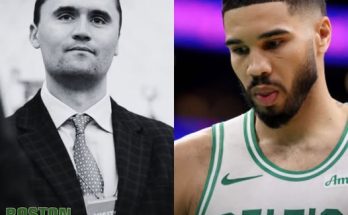The Cleveland Browns’ quarterback room has become one of the most talked-about battles in the NFL this offseason. At the center of this heated competition is rookie Shedeur Sanders, who brings a unique dynamic to the fray—not just for his talent on the field but also for the high-profile family connection he carries. As the Browns prepare for training camp and the grueling preseason ahead, Sanders has reportedly made a surprising and deeply personal request: he has told his father, legendary NFL Hall of Famer Deion Sanders, not to attend the team’s training camp. This decision is notable not only because of the father-son bond but also because it reveals a lot about Shedeur’s mindset, his desire to carve out his own path, and the intense nature of the four-way battle for the starting quarterback position with the Browns.
Shedeur Sanders entered the NFL with plenty of buzz and expectations. Coming from a strong college career, where he showcased poise, arm talent, and leadership, he immediately captured the attention of the Browns and their fans. However, unlike many rookies who might relish the presence of family members during crucial moments like training camp, Shedeur’s choice to keep Deion away underscores the seriousness with which he views this competition. For a young quarterback trying to prove himself, especially one with such a famous surname, the pressure to establish his own identity is immense.
Deion Sanders, known affectionately as “Prime Time,” is one of the most iconic figures in NFL history. His flamboyant personality, electrifying style of play, and massive impact on and off the field have made him a legend. But for Shedeur, being Deion’s son is a double-edged sword. On one hand, it brings unparalleled access to football knowledge and mentorship. On the other, it sets a towering standard and subjects Shedeur to constant comparisons. Shedeur’s decision to ask his father not to visit training camp reflects a maturity and self-awareness that many rookies might lack. It signals that he wants to be judged on his own merits, without the added distractions or perceptions that could come from having Deion in his immediate orbit during such a pivotal time.
The Browns’ quarterback competition itself is no small matter. The team has assembled a four-way battle featuring a mix of experience and youth, each vying for the starting nod. Alongside Shedeur Sanders, there are established veterans and other promising players who believe they have what it takes to lead Cleveland’s offense. This kind of competition fosters an intense environment where every practice rep, every throw, and every decision can be the difference between starting under center or sitting on the sidelines. For Shedeur, keeping his focus razor-sharp means minimizing outside influences, including the emotional and sometimes overwhelming presence of a father figure like Deion, especially during the high-stakes early stages of his professional career.
This request also highlights a broader narrative about the challenges faced by the children of famous athletes trying to make their own mark. The weight of expectations can be crushing. The media often fixates on the familial connection, sometimes overshadowing the individual’s own talents and work ethic. By establishing boundaries with his father, Shedeur is taking control of his own story, asserting his independence, and signaling that he is here to compete on his own terms. It’s a subtle but powerful message to the Browns organization, his teammates, and the fans watching closely.
Deion Sanders himself has been vocal in the past about supporting his son’s journey. He has praised Shedeur’s work ethic and has been seen giving advice on mechanics, reading defenses, and managing the mental aspects of the quarterback position. Yet, this situation demonstrates that even with a supportive and football-savvy father, Shedeur understands the importance of personal space and the need to build confidence without external pressure. It’s a testament to their relationship that Shedeur could communicate this boundary clearly and that Deion respects it. Such mutual respect is crucial in any parent-child dynamic, but especially in sports, where the lines between personal and professional can easily blur.
Moreover, the Browns’ decision to draft or sign Shedeur Sanders shows their belief in his potential. The team is no stranger to quarterback controversies and high expectations; they have cycled through quarterbacks searching for a long-term solution. Bringing Shedeur into the fold is a strategic move to inject youthful talent and a fresh perspective into the offense. The Browns have invested in their offensive line and skill position players, setting the stage for a quarterback who can handle pressure and thrive. With the four-way competition underway, each candidate must showcase not just talent but also leadership, mental toughness, and the ability to assimilate into the Browns’ system.
Shedeur Sanders’ choice to exclude his father from training camp attendance is also a nod to the professionalism required at the NFL level. Training camp is a grueling and intense period designed to evaluate players under pressure. The coaches scrutinize every detail, and players must prove their worth daily. For a rookie, it can be overwhelming, and the presence of a famous parent could add a layer of distraction or unwanted attention. By opting for privacy and focusing on the task at hand, Shedeur is embracing the demands of the NFL grind and showing that he understands the significance of this moment in his career.
The story also provides insight into the evolving nature of sports parenting and athlete development. In past decades, it was common for family members to be closely involved in every aspect of an athlete’s journey, sometimes leading to blurred lines and interference. Today, many young athletes recognize the importance of carving their own space and building resilience independently. Shedeur’s stance reflects this modern approach—acknowledging support but also prioritizing autonomy. This balance between family involvement and individual responsibility is critical for athletes navigating the complex world of professional sports.
From a broader perspective, the Browns’ quarterback battle is an exciting storyline for fans and analysts alike. The competition injects energy and unpredictability into the offseason narrative. It keeps the team motivated and the coaching staff engaged in finding the best fit for their offensive scheme. The presence of Shedeur Sanders adds an intriguing element, blending the legacy of a football icon’s family with the fresh promise of new talent. His ability to manage the pressures of this competition and maintain focus will be a key factor in how the Browns shape their offense going forward.
It is also worth noting the role media plays in this dynamic. The presence of Deion Sanders at training camp would undoubtedly attract significant media attention, which could shift focus away from the players and onto the spectacle. By requesting his father to stay away, Shedeur is effectively controlling the narrative, allowing the spotlight to remain on his performance rather than his lineage. This move could help reduce distractions and create a more level playing field for all competitors involved in the quarterback battle.
Looking ahead, the Browns will continue to monitor all four quarterbacks closely throughout training camp and preseason games. Coaches will evaluate not only physical skills but also decision-making, leadership qualities, and the ability to execute under pressure. Shedeur Sanders’ request signals his seriousness and readiness to compete, and it will be interesting to see how he responds to the challenges ahead. If he can hold his own and impress the coaching staff, he may well emerge as a key figure in the Browns’ future.



